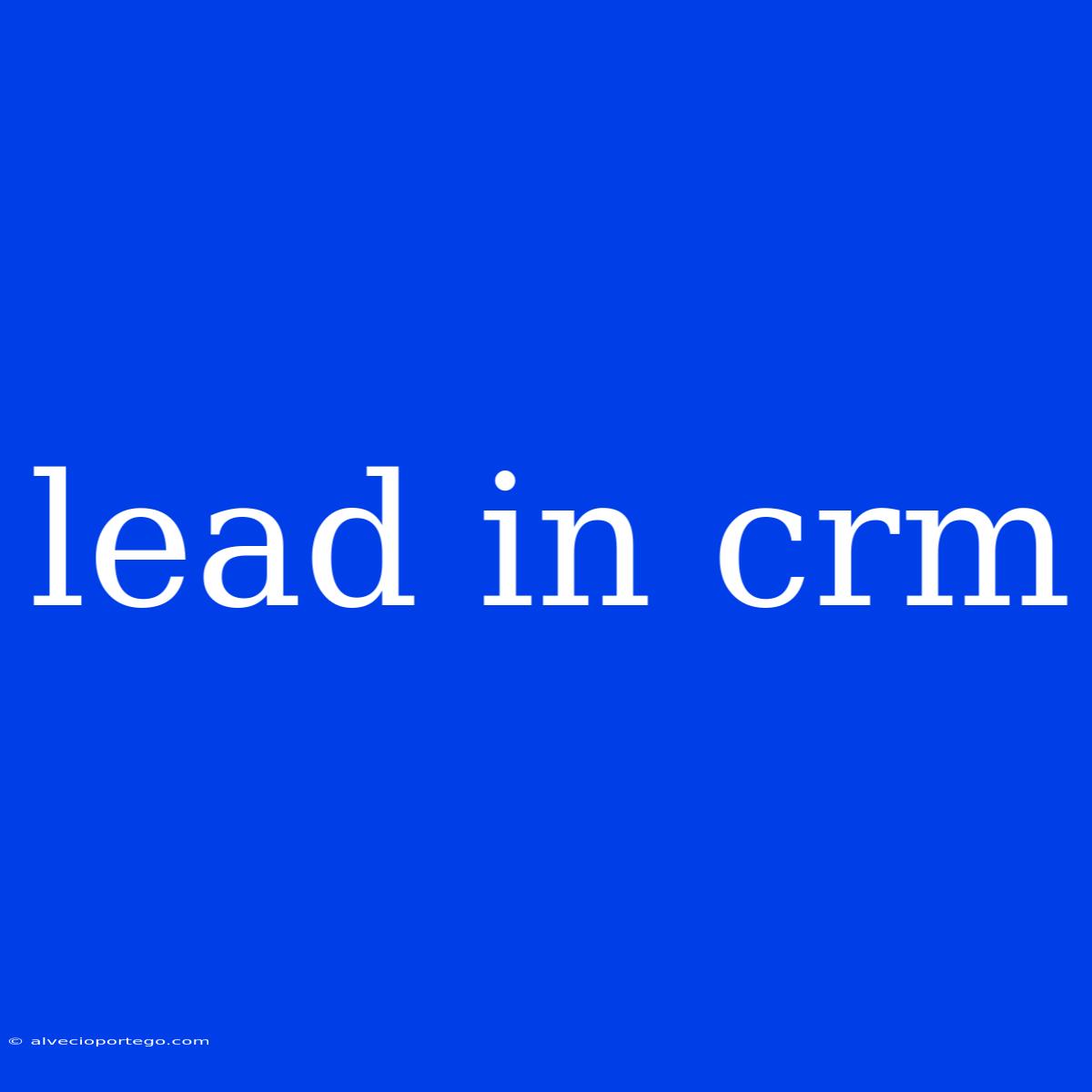The Power of Lead Management in CRM: A Guide to Success
Lead management is a critical aspect of any successful CRM strategy. It involves the process of identifying, capturing, nurturing, and converting potential customers into paying clients. By effectively managing your leads, you can significantly improve sales efficiency, boost conversion rates, and ultimately drive revenue growth.
Why is Lead Management Important?
- Increased Sales Efficiency: By centralizing lead information and automating follow-up processes, you streamline the sales cycle, freeing up your team to focus on higher-value activities.
- Improved Lead Quality: Targeted lead nurturing strategies help you qualify leads and prioritize those most likely to convert, improving the overall quality of your sales pipeline.
- Enhanced Customer Relationships: By tracking interactions and preferences, you can personalize communication and build stronger relationships with potential customers, leading to greater customer satisfaction and loyalty.
- Data-Driven Insights: CRM systems provide valuable data on lead behavior, enabling you to analyze trends, identify areas for improvement, and optimize your lead management strategies.
Key Components of Lead Management in CRM:
1. Lead Capture and Qualification:
- Identify potential leads: This can be done through various channels like website forms, social media interactions, marketing campaigns, and referrals.
- Gather essential information: Capture key details such as name, email, phone number, company, and industry.
- Qualify leads based on criteria: Determine whether leads meet your ideal customer profile and have the potential to become paying customers.
2. Lead Nurturing:
- Segment leads based on their needs and interests: Develop targeted communication strategies for different lead segments.
- Provide valuable content: Share relevant blog posts, white papers, webinars, and case studies that address their pain points and educate them about your solutions.
- Automate follow-up: Send personalized emails, SMS messages, and reminders to keep leads engaged.
- Track lead interactions and engagement: Monitor lead activity to gauge their interest and adjust your nurturing strategies accordingly.
3. Lead Conversion:
- Present compelling offers: Develop tailored proposals and presentations that address lead needs and showcase your unique value proposition.
- Overcome objections: Address lead concerns and build trust through effective communication and negotiation skills.
- Close the deal: Guide leads through the sales process and secure their commitment to becoming paying customers.
4. Lead Scoring and Prioritization:
- Assign points to leads based on their activity and engagement: Give higher scores to leads who exhibit strong interest and engagement with your brand.
- Prioritize leads based on their scores: Focus your sales efforts on the leads with the highest scores, increasing your chances of conversion.
5. Lead Reporting and Analytics:
- Track key metrics: Monitor lead generation sources, conversion rates, average deal size, and customer lifetime value.
- Analyze data to identify trends and areas for improvement: Use insights to optimize your lead management strategies and achieve better results.
Implementing Lead Management in Your CRM:
- Choose the right CRM platform: Select a system that offers comprehensive lead management features and integrates with your existing tools.
- Customize your lead management process: Define your ideal customer profile, establish lead qualification criteria, and develop targeted lead nurturing strategies.
- Train your team: Ensure everyone understands the importance of lead management and knows how to effectively use the CRM system.
- Continuously monitor and adjust: Regularly analyze your lead management results, identify areas for improvement, and make necessary adjustments to optimize your strategy.
By embracing effective lead management, you can transform your CRM into a powerful engine for driving sales and maximizing your business potential.

